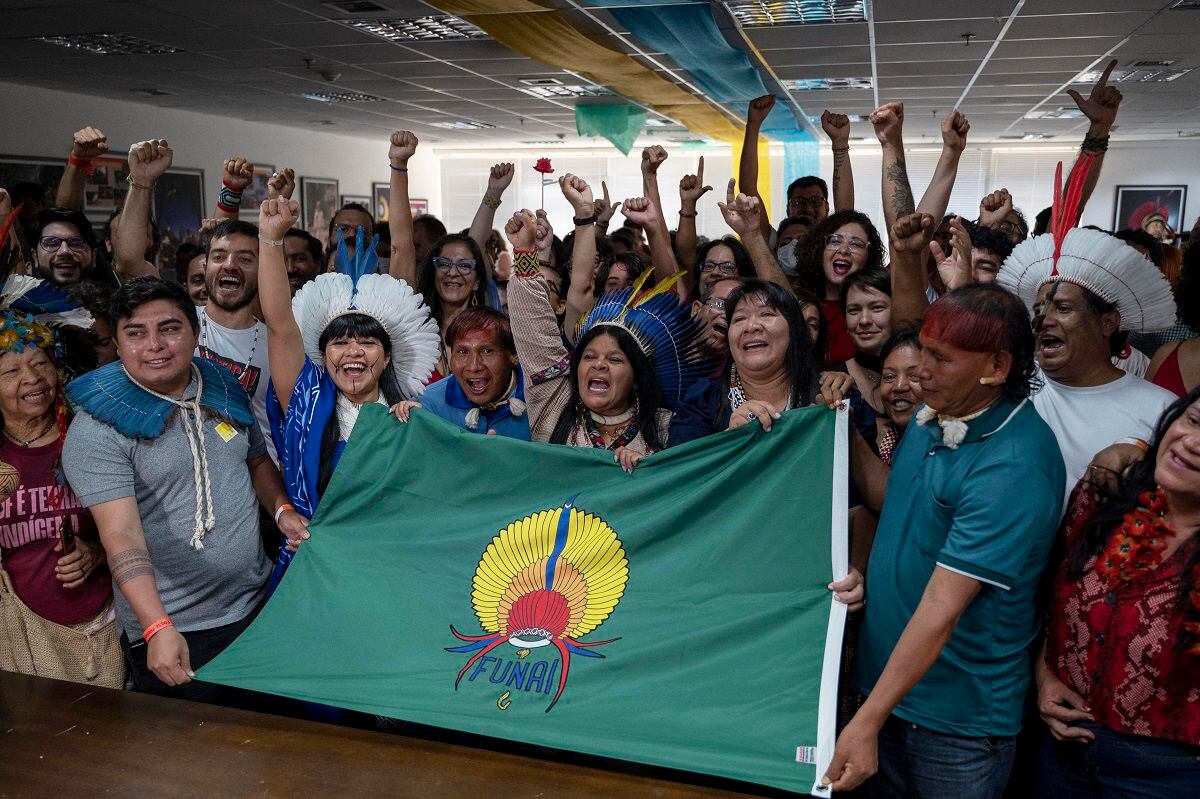The government of the new Brazilian president, Luiz Inacio Lula da Silvarenamed the body responsible for policies for indigenous peoples for 55 years to exclude from its name the term “Indian”, considered discriminatory and colonizing, official sources told EFE.
The National Indian Foundation (Funai), created in 1967 and which has been the main promoter and executor of policies for indigenous peoples in Brazil, was renamed National Foundation of Indigenous Peoples (Funai) from a decree published by the progressive leader last Monday.
LOOK HERE: Lula signs 13 decrees to revoke controversial Bolsonaro measures, including the free sale of weapons to civilians
“Indian is a word adopted by the colonizers to define us, but for some years now we have been using the term indigenous, which means ‘original’, the one who was here before the others”, explained to EFE the indigenous leader Sonia Guajajarawho on Sunday took over as head of the unprecedented Ministry of Indigenous Peoples.
The change responds to the decision of the leader of the leftist workers party (PT) to promote a new policy for indigenous people that has them as protagonists, and also the policy of promoting inclusive language, not only for genders but also for races.
According to the new minister, representative of the Guajajara/Tenteharan ethnic group that lives in the indigenous reserve arariboiain the Amazon state of Maranhaothe new name of Funai represents and values the diversity of Brazilian indigenous peoples.
“For this reason, at this time of resumption, it is essential that we rename institutional bodies, such as Funai, which acts to defend and promote our rights and have to guarantee our feeling of belonging to our people.”, affirmed the activist chosen last year by Time magazine as one of the hundred most influential personalities in the world.
Guajajara, elected deputy in the legislative elections on October 2, added that the term “Indian” is also considered imprecise by specialists, since it generalizes the more than 300 existing ethnic groups in Brazil.

In the same sense, the federal deputy and lawyer joenia wapichanawho on Monday became the first indigenous woman to assume the presidency of Funai.
MORE INFORMATION: How Lula deactivated in two days the noise of the radicals who called for a military coup in Brazil
“It is a historic moment for the indigenous peoples of Brazil, that, after so much confrontation and setback, and with the only indigenous body totally dismantled, we can resume Funai. A Funai that we can now say is ours”, Wapichana said when criticizing the policies of the now former president Jair Bolsonaro.
The far-right leader not only kept his promise not to delimit any new indigenous reserves during his government, but also promoted initiatives that put them in danger, such as authorizing mining in existing reserves.
The change of name of Funai was one of the requests made by the Articulation of the Indigenous Peoples of Brazil (Apib) to the group of Lula’s transition team that analyzed the situation of the native peoples.
Source: Elcomercio
I am Jack Morton and I work in 24 News Recorder. I mostly cover world news and I have also authored 24 news recorder. I find this work highly interesting and it allows me to keep up with current events happening around the world.

:quality(75)/cloudfront-us-east-1.images.arcpublishing.com/elcomercio/TE6LWHHXLVB5DD2XZIZJSDYQPI.jpg)


:quality(75)/cloudfront-us-east-1.images.arcpublishing.com/elcomercio/M3B4ABO36ZCYRCHQRU6CFMWRHM.jpg)
:quality(75)/cloudfront-us-east-1.images.arcpublishing.com/elcomercio/5QHXBF3WQFDJRAZZVWS3C6DV4M.jpg)
:quality(75)/cloudfront-us-east-1.images.arcpublishing.com/elcomercio/BUO6EJ5KRZHLFCS3FWMMF5HBPQ.jpg)
